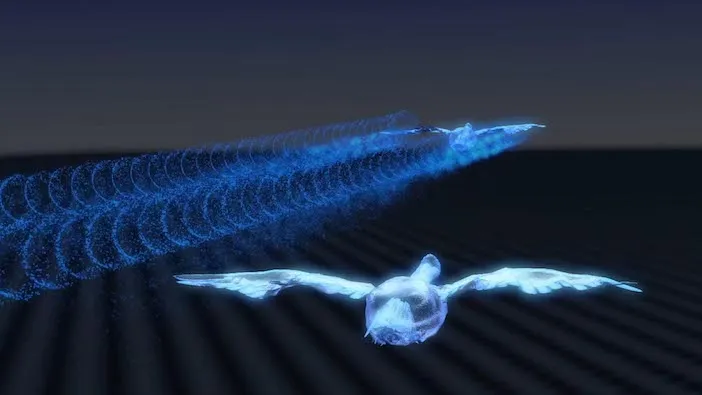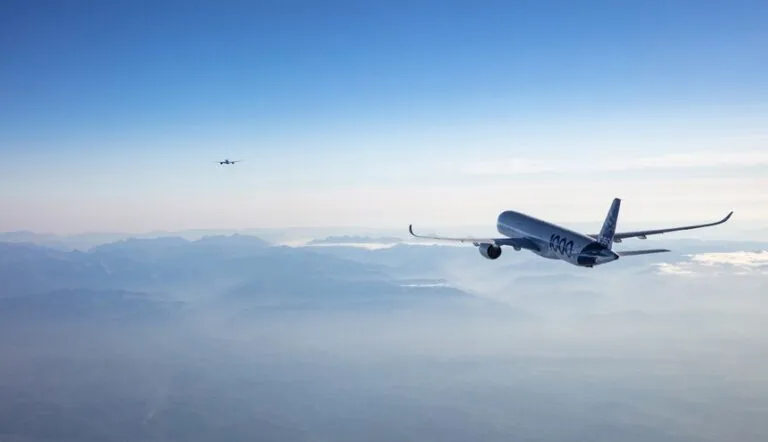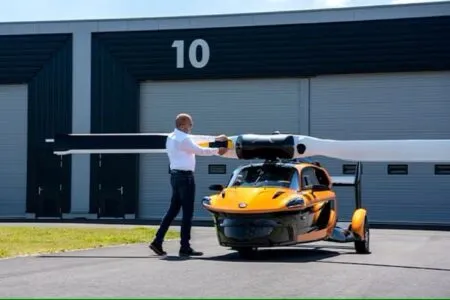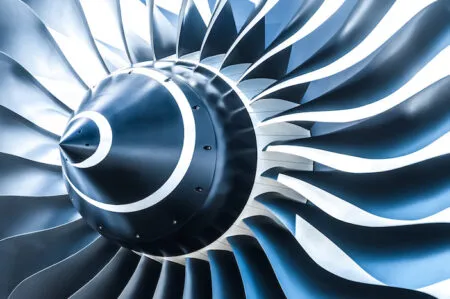Airbus has performed the first long-haul demonstration of a formation flight between Toulouse, France and Montreal Canada, as part of the fello’fly project to reduce fuel burn and carbon dioxide emissions
The demonstration flight used two A350 aircraft, MSN1 and MSN59, the former as the leader aircraft and the latter as the follower just 3km (1.8 miles) behind and took place on November 9, 2020.
The flight is the first to be conducted in general air traffic regulated transatlantic airspace at such a close distance using commercial passenger aircraft.
According to Airbus more than six tons of carbon dioxide emissions were saved on the trip, confirming the potential for more than a 5% fuel saving on long-haul flights.
The fello’fly project was launched in 2019 within Airbus’ UpNext subsidiary to prove that the concept of Wake Energy Retrival (WER) could safely reduce fuel burn and emissions of aircraft. WER is a natural phenomenon observed in migrating birds such as geese, which fly in a “V” formation in the updraft of air the wake creates from a leader.

Flight control systems developed by Airbus engineers enable the follower aircraft to safely fly in the wake updraft of the leader aircraft allowing it to reduce engine thrust and reduce fuel consumption.
Sabine Klauke, chief technical officer at Airbus said, “This demonstration flight is a concrete example of our commitment to making our decarbonization roadmap a reality. It also speaks to how collaboration across the industry will be key to making this happen.
“We have received a strong level of support for this project from our airline and air traffic partners, plus regulators. The opportunity to get this deployed for passenger aircraft around the middle of this decade is very promising.
“Imagine the potential if fello’fly was deployed across the industry.”
Pilots from Airbus partner airlines SAS Scandinavian Airlines and Frenchbee witnessed the transatlantic flight onboard as observers. The project and this week’s flight also involved air traffic management partners, air navigation service providers and the French aerospace research agency DGAC to show that a flight with WER can be achieved without compromising safety.
Previous tests Airbus conducted in 2016 showed that WER could reduce the amount of fuel used by airlines by up to 10%.
Airbus said the next step for the project is to obtain approval from civil aviation authorities so that the WER operational concept can be certified for wide industry use.
Related Stories
Airbus to flight test wake-energy retrieval techniques next year
Research reveals fuel savings possible from aircraft ‘surfing’ winds during transatlantic flights





